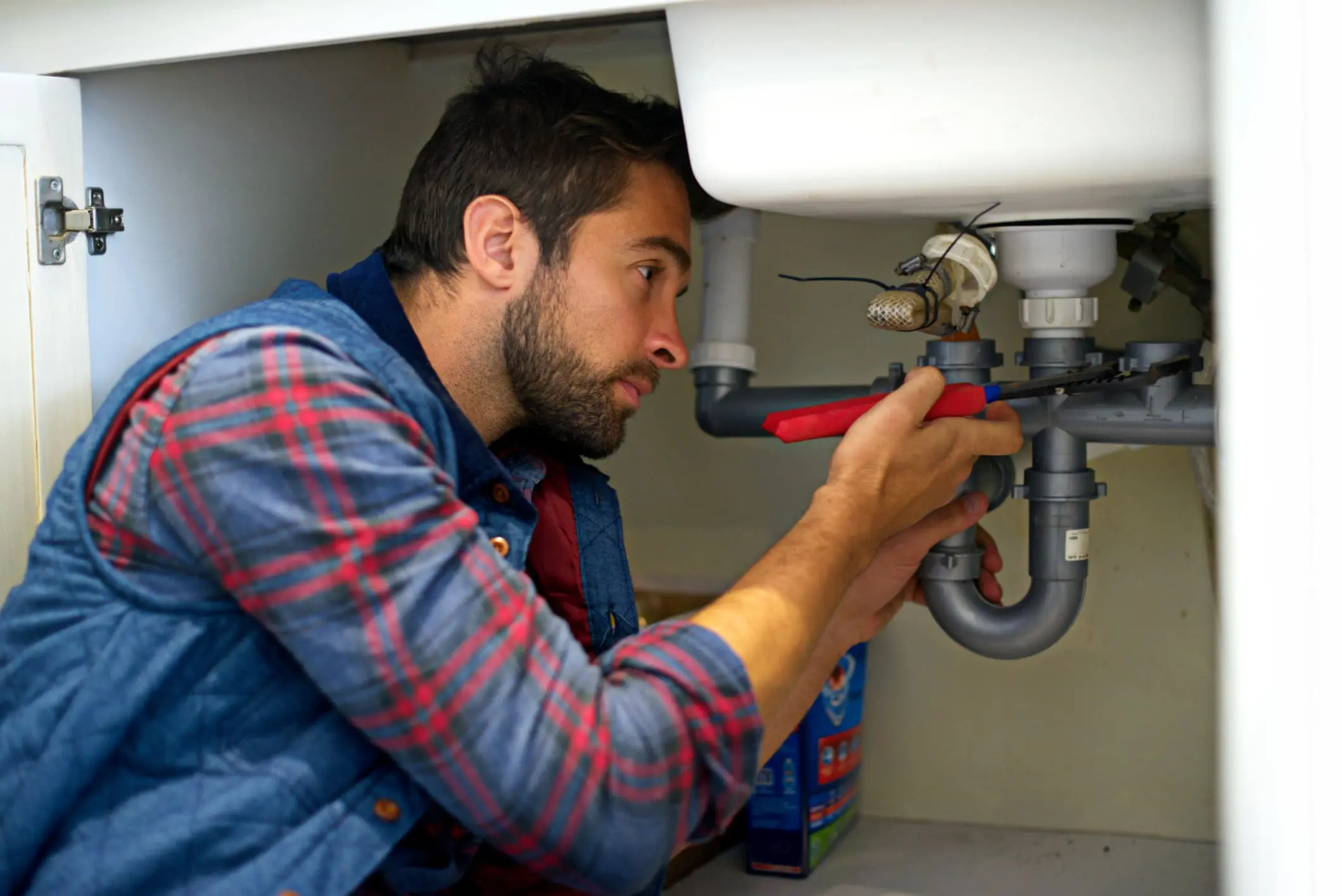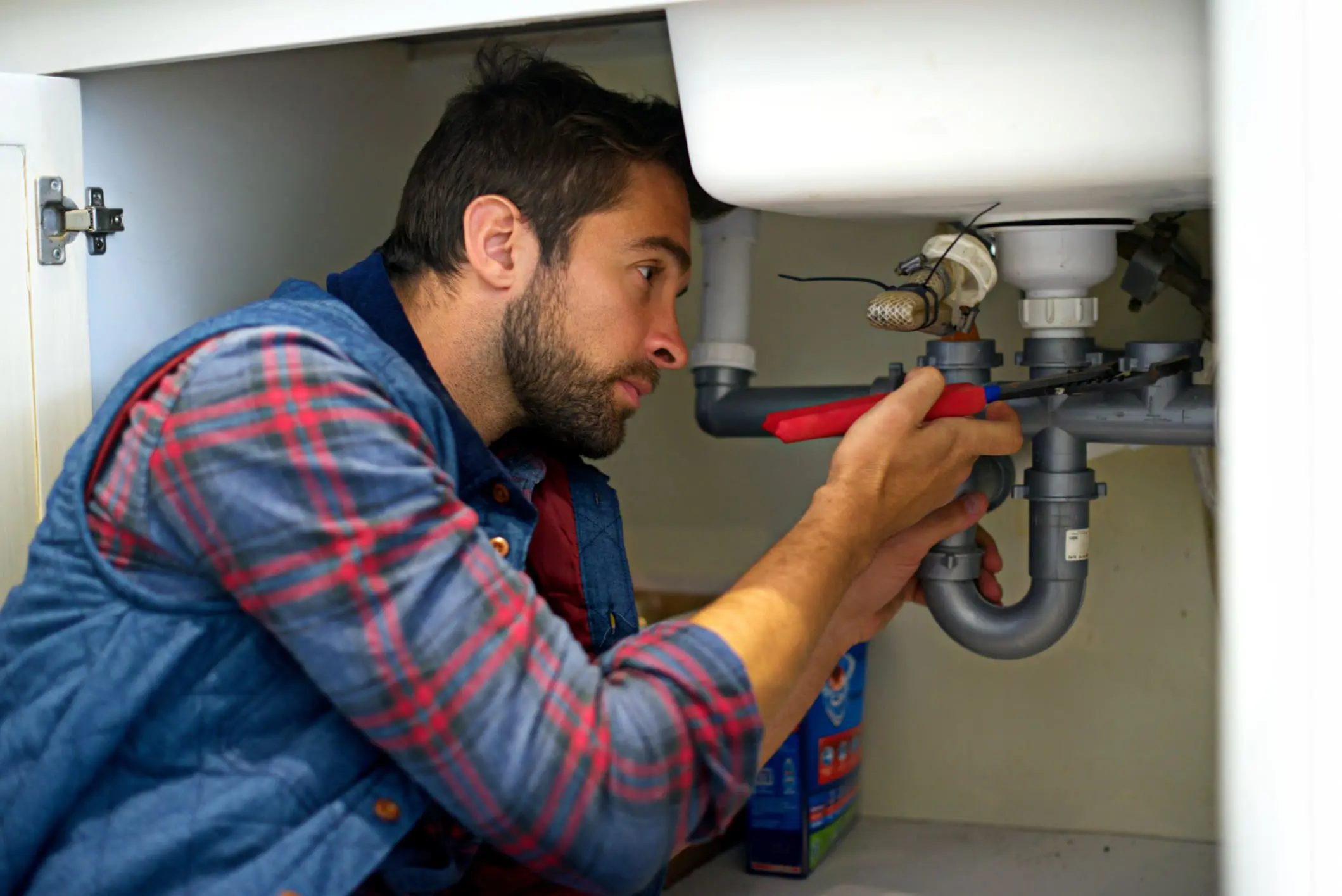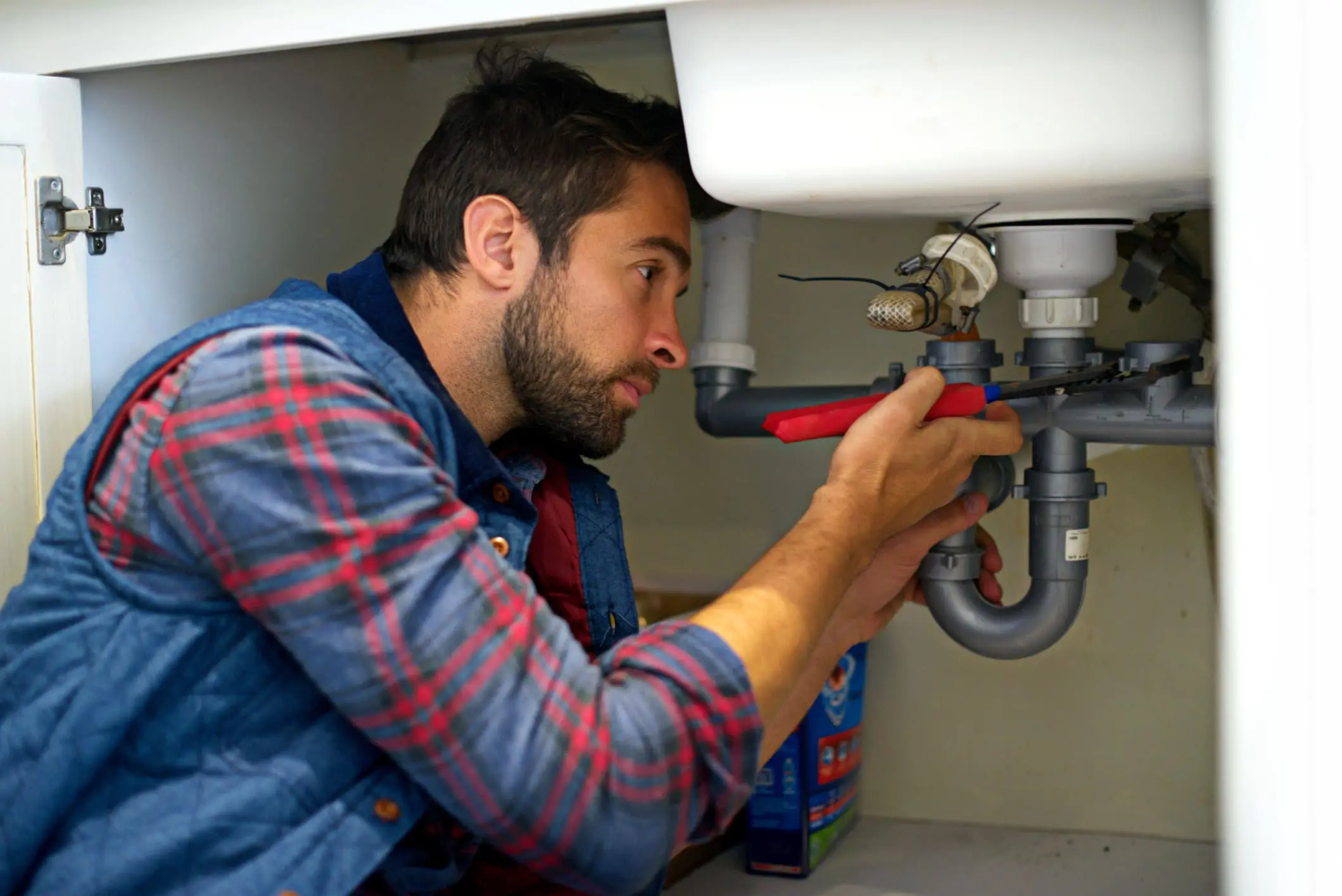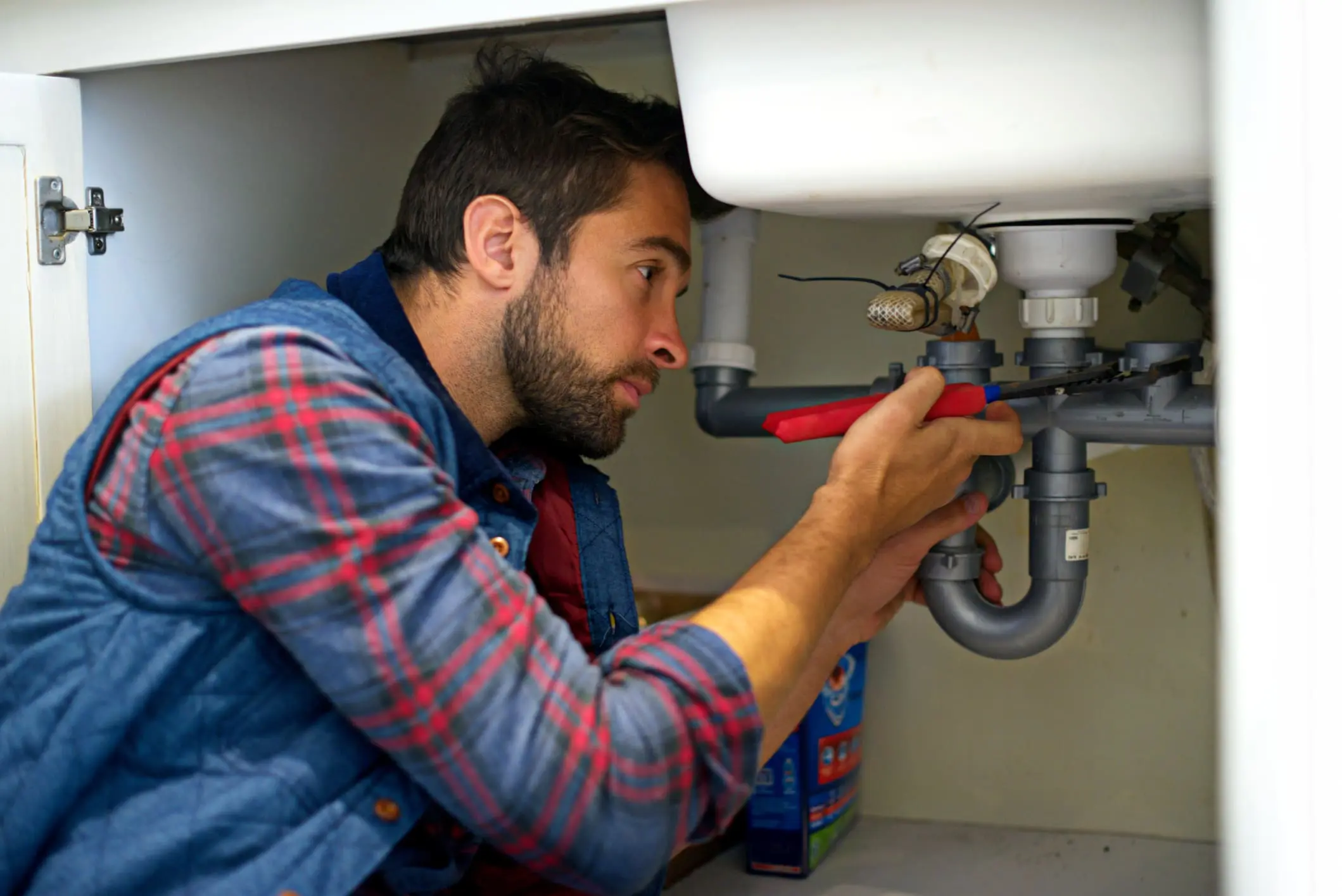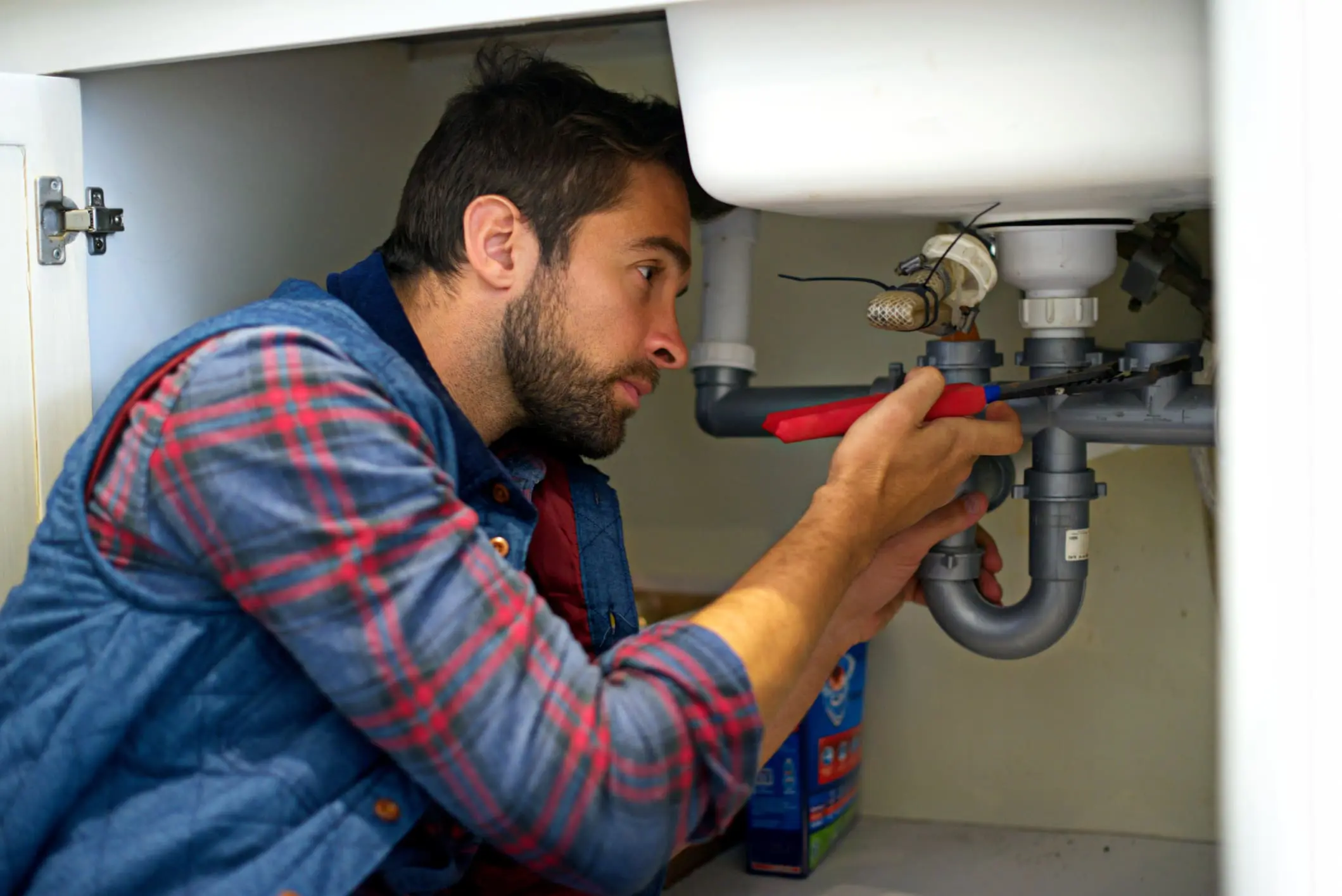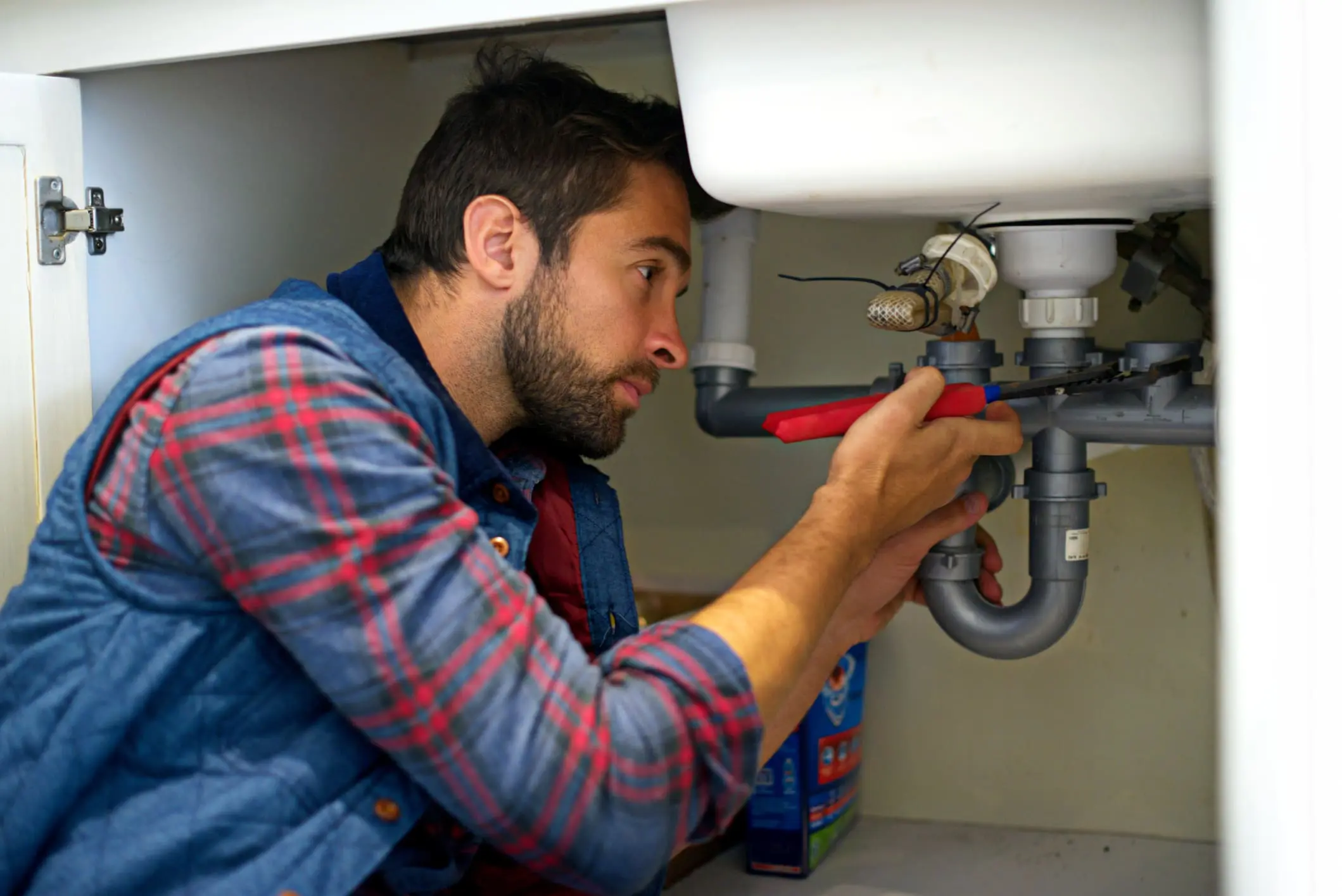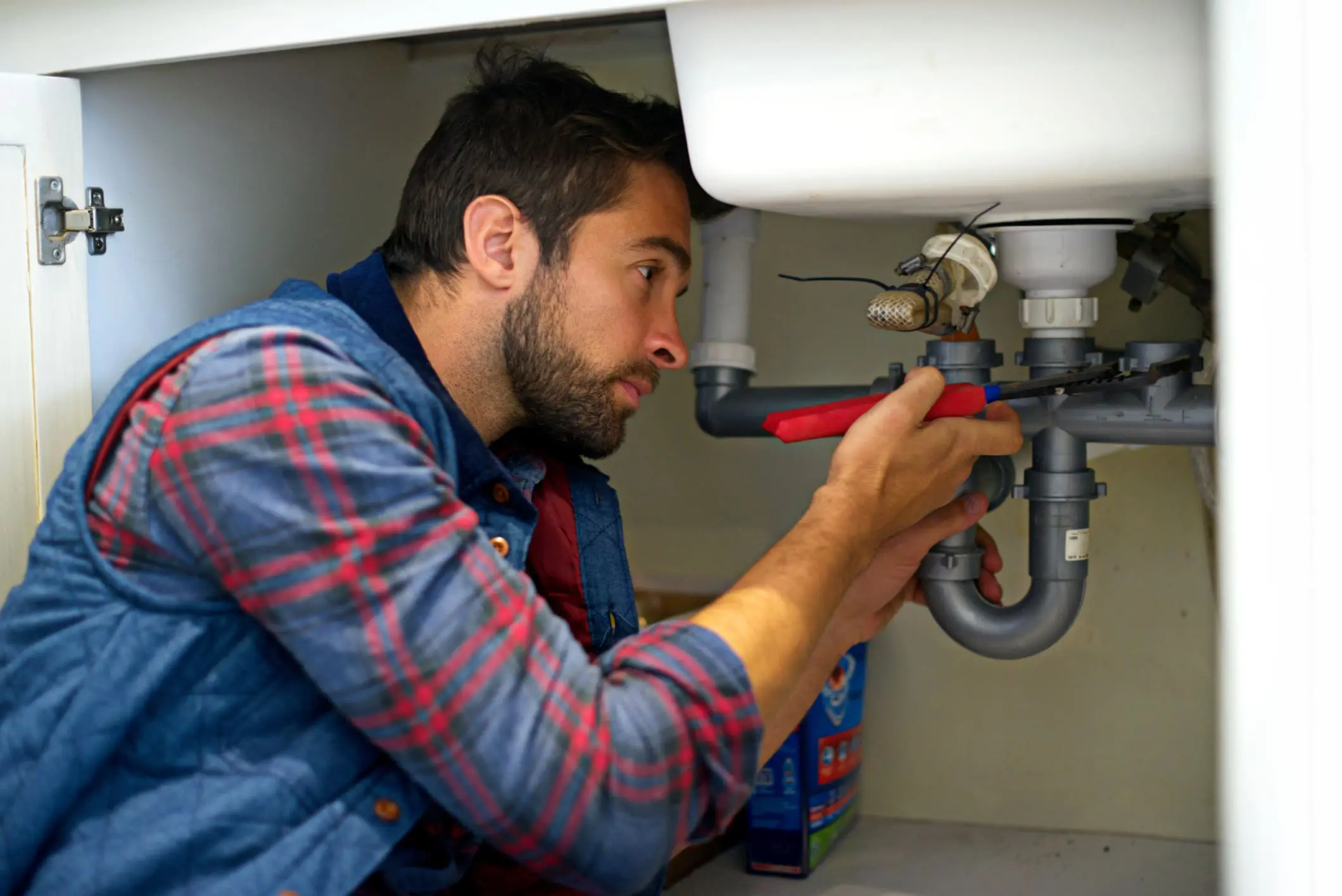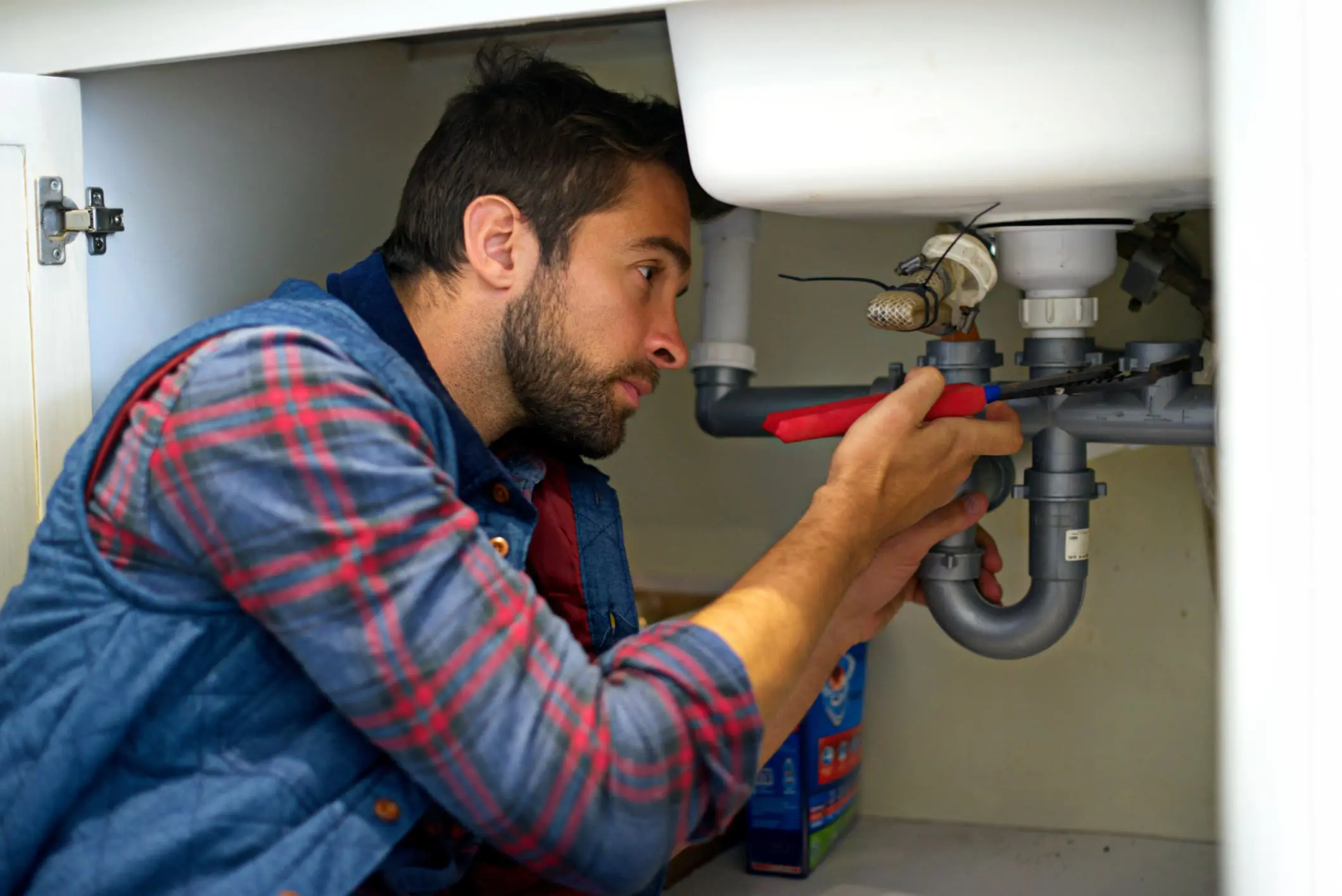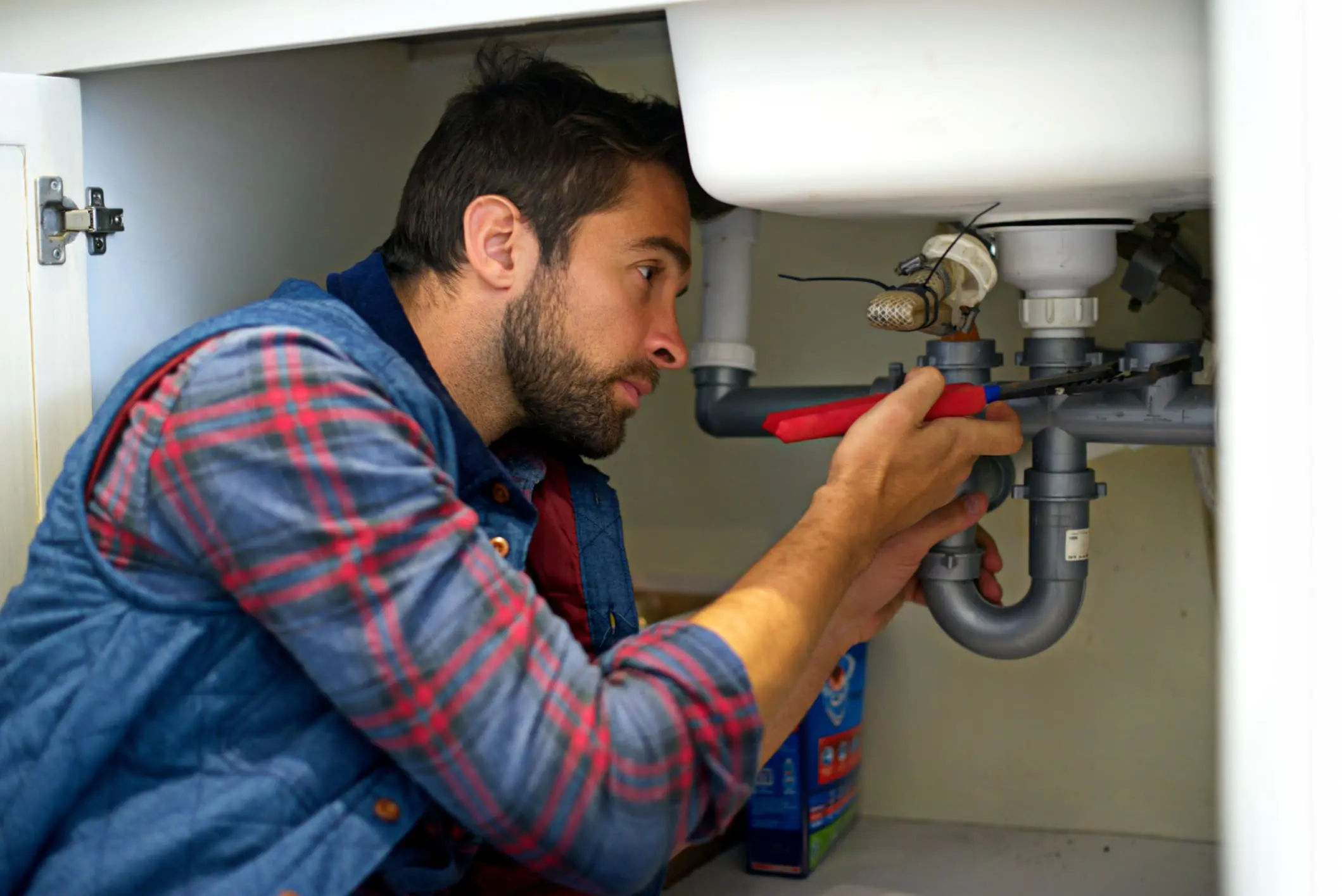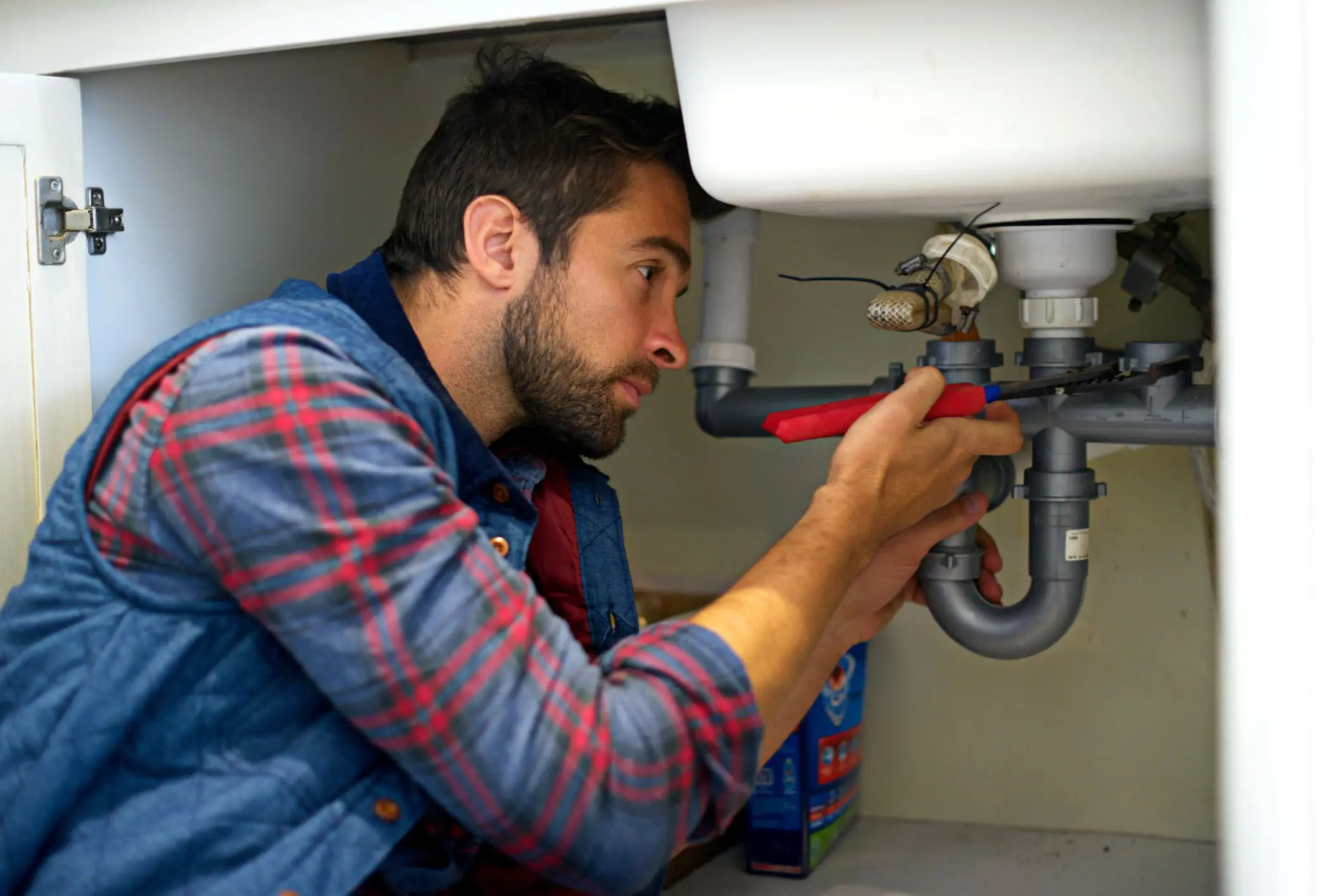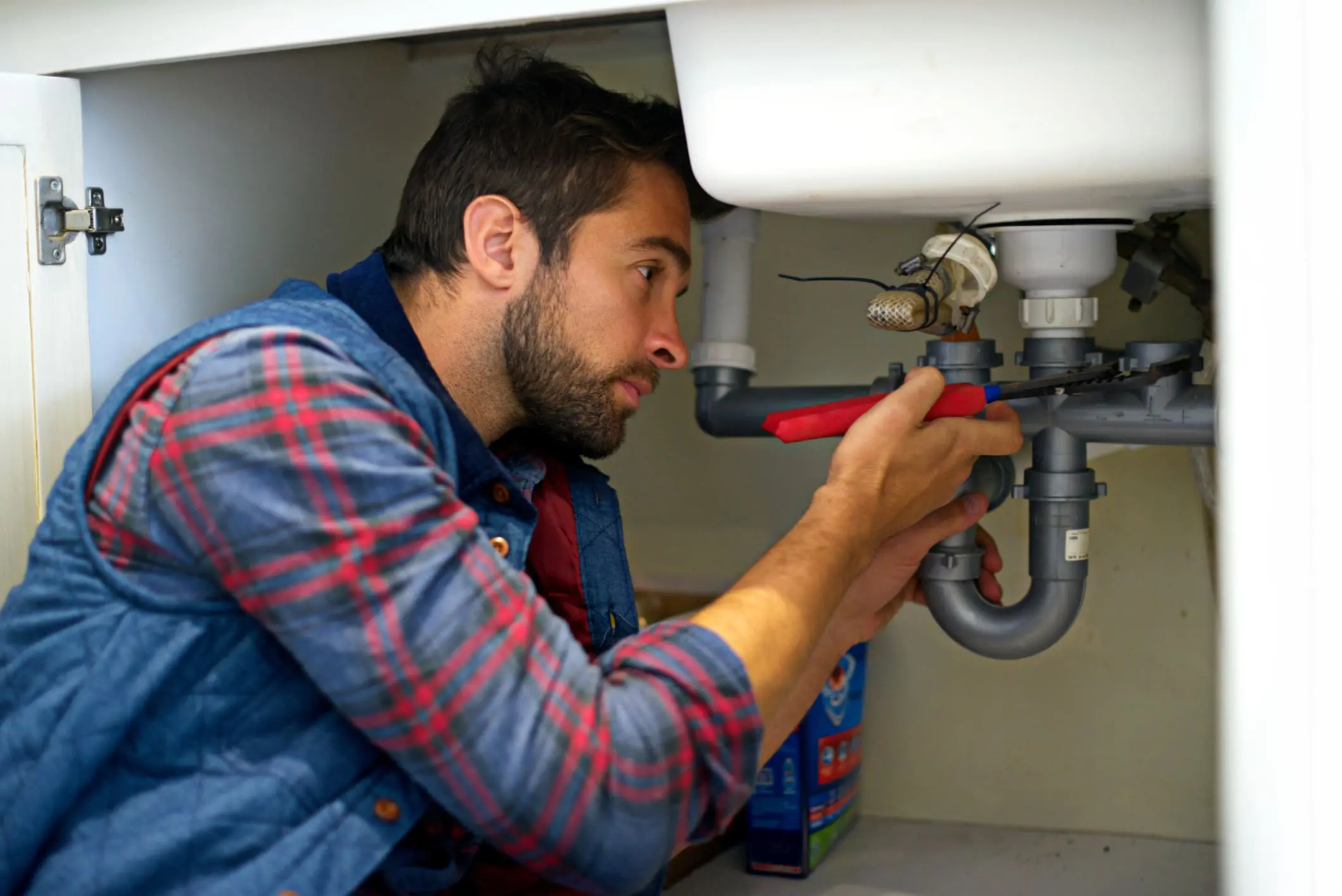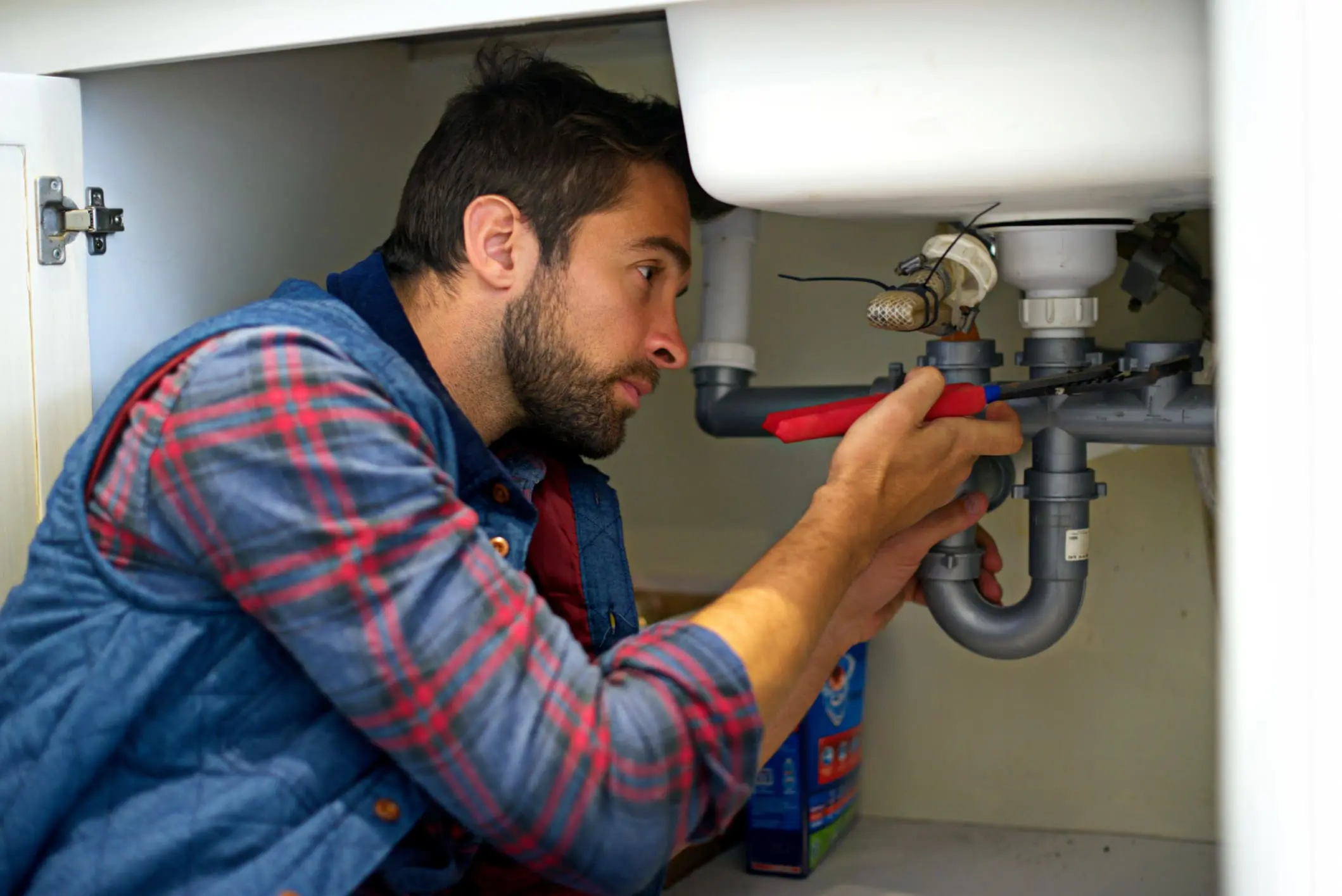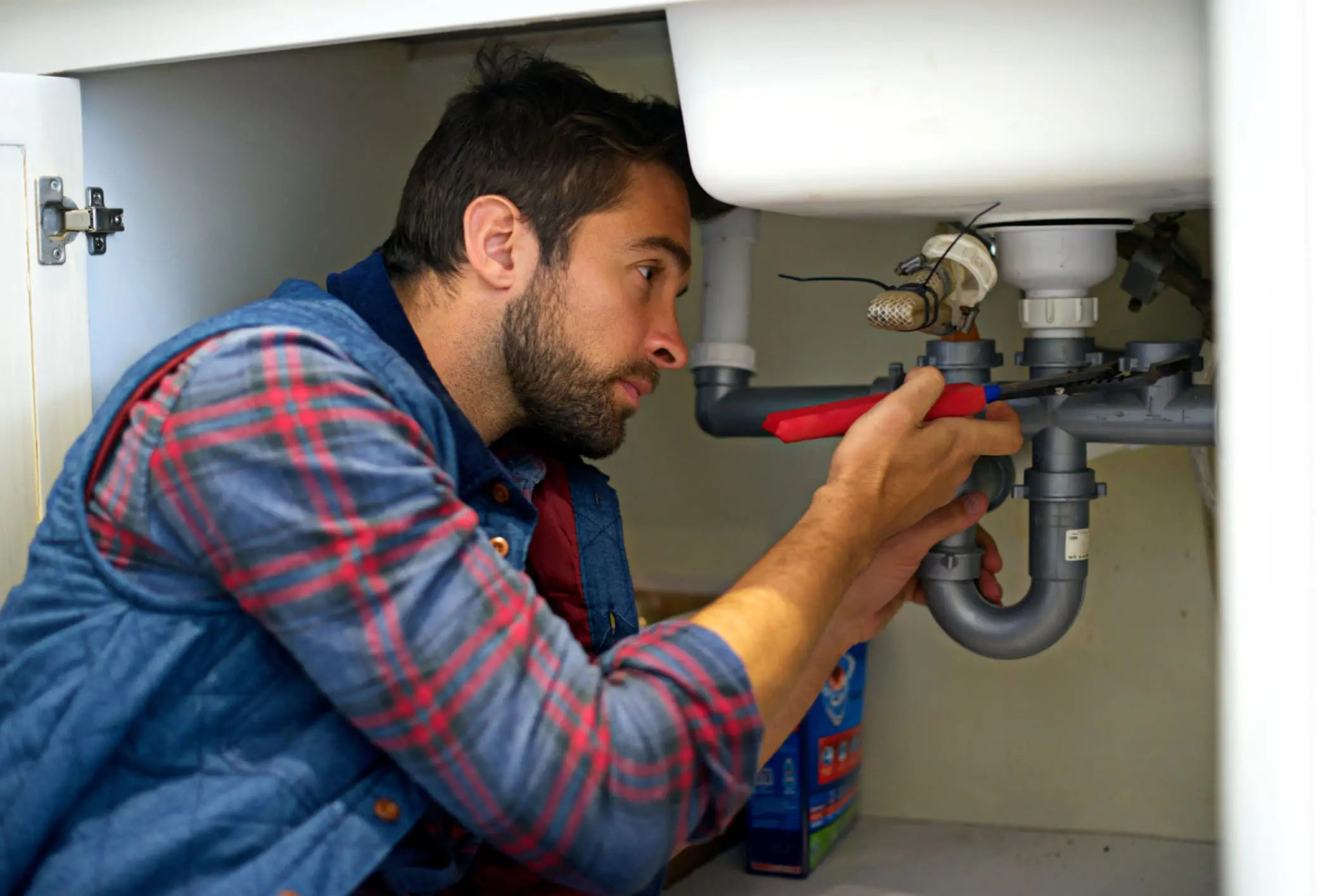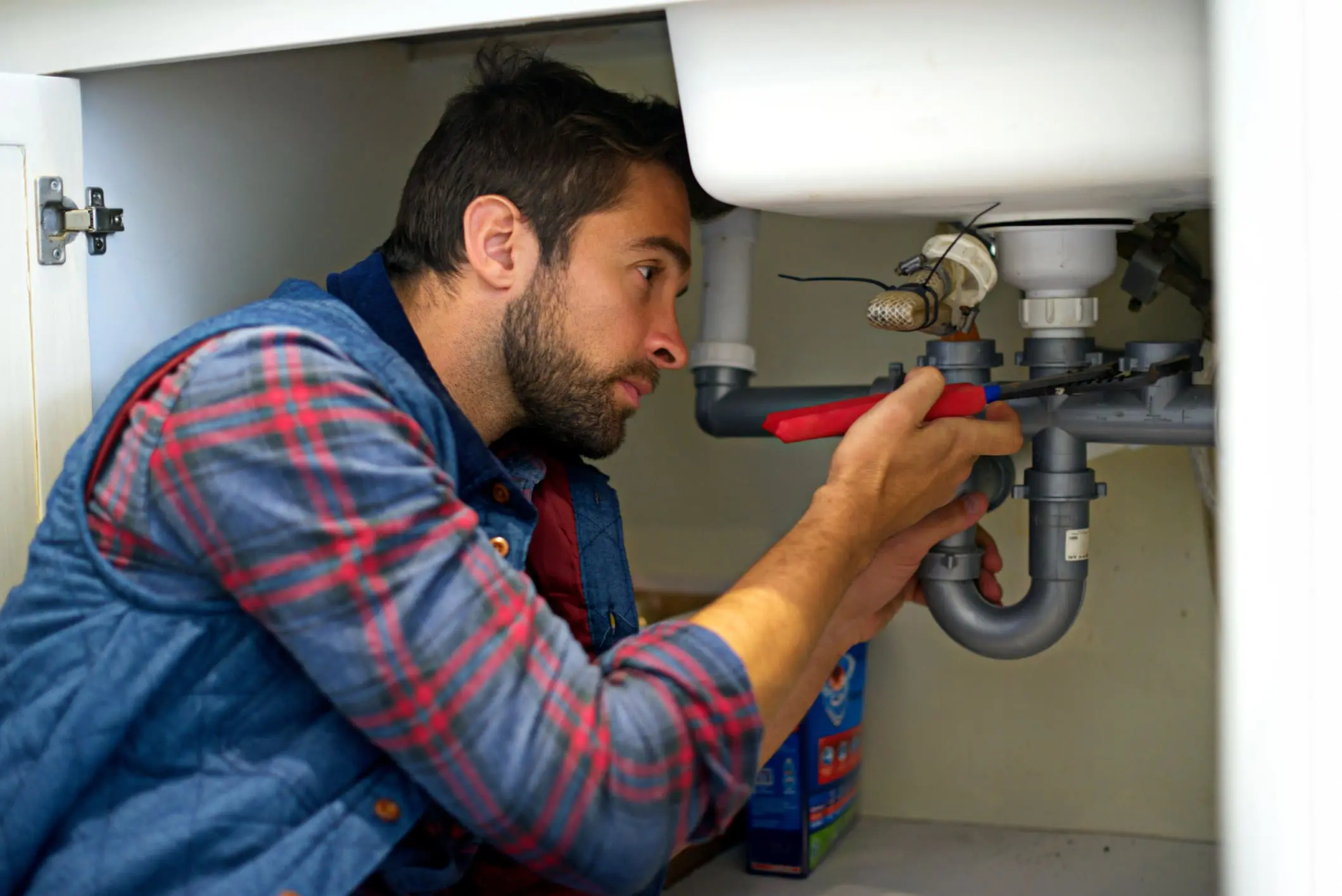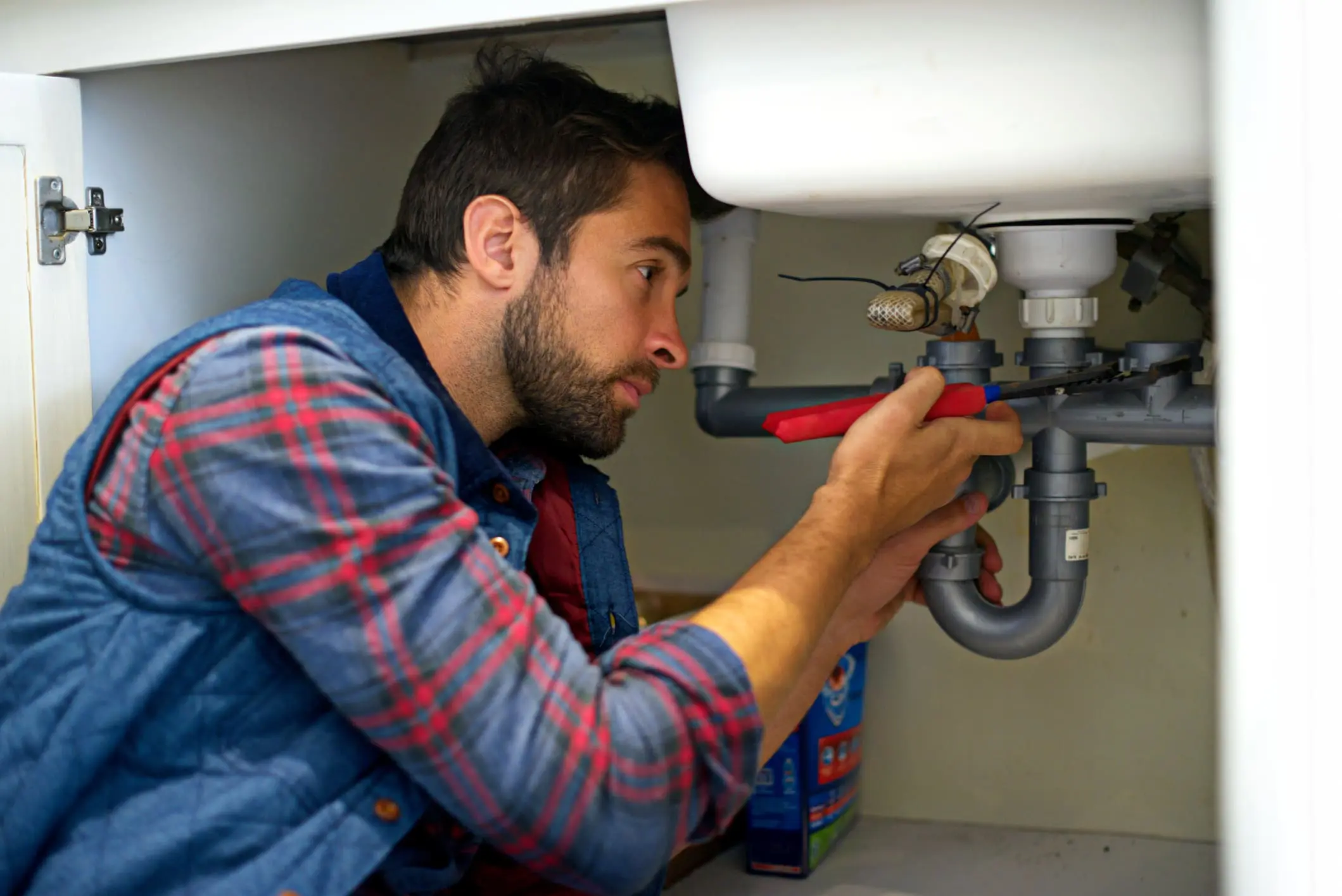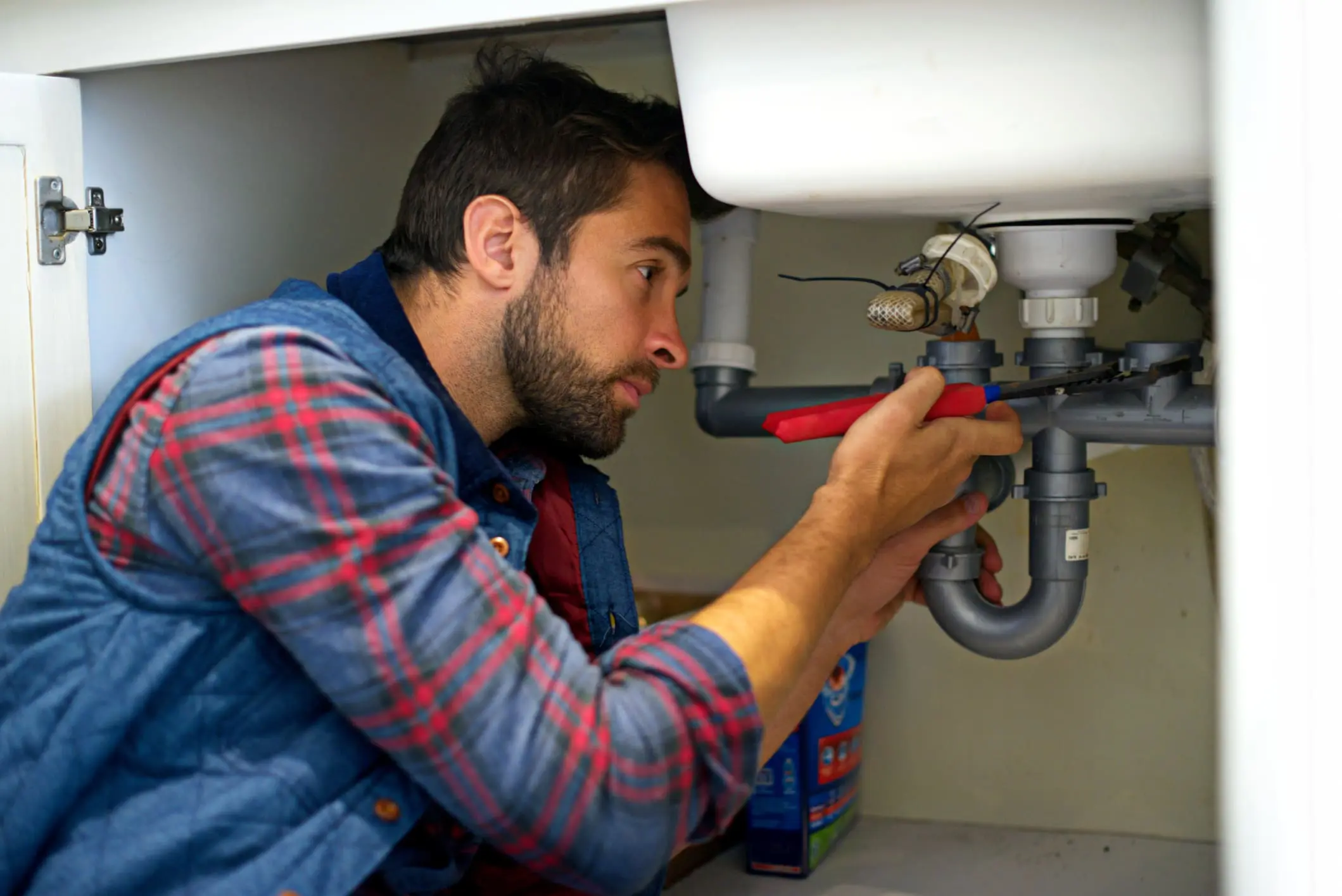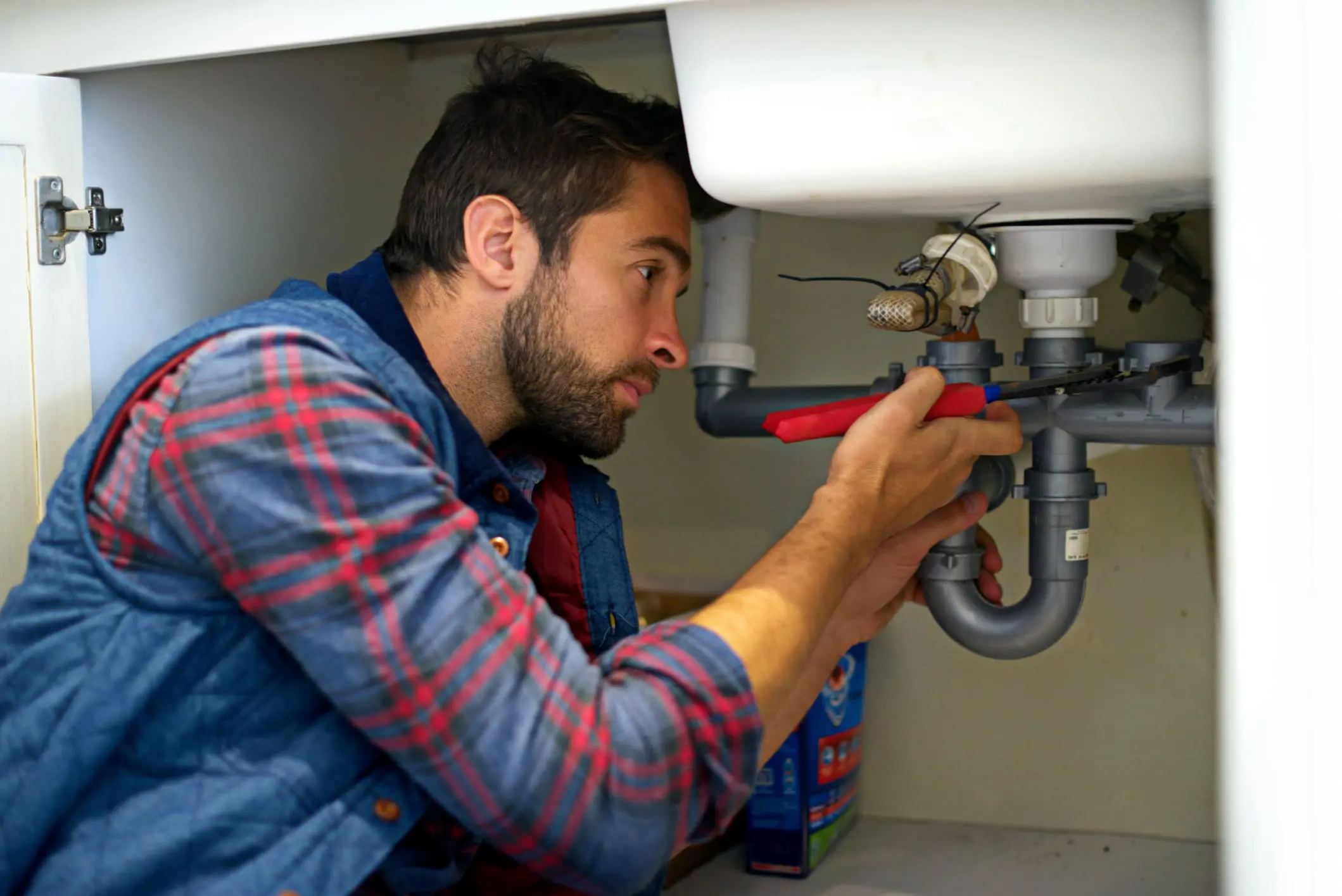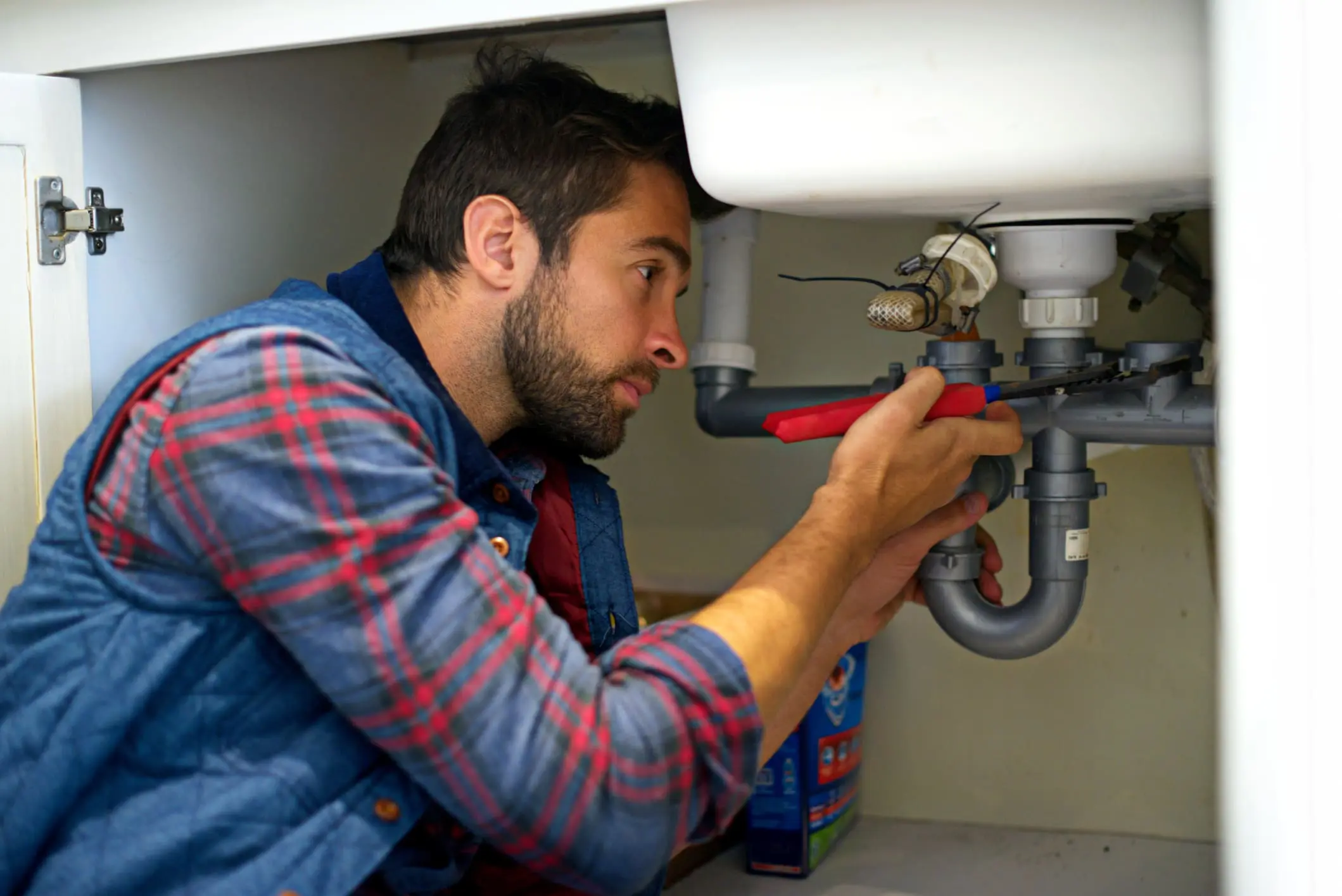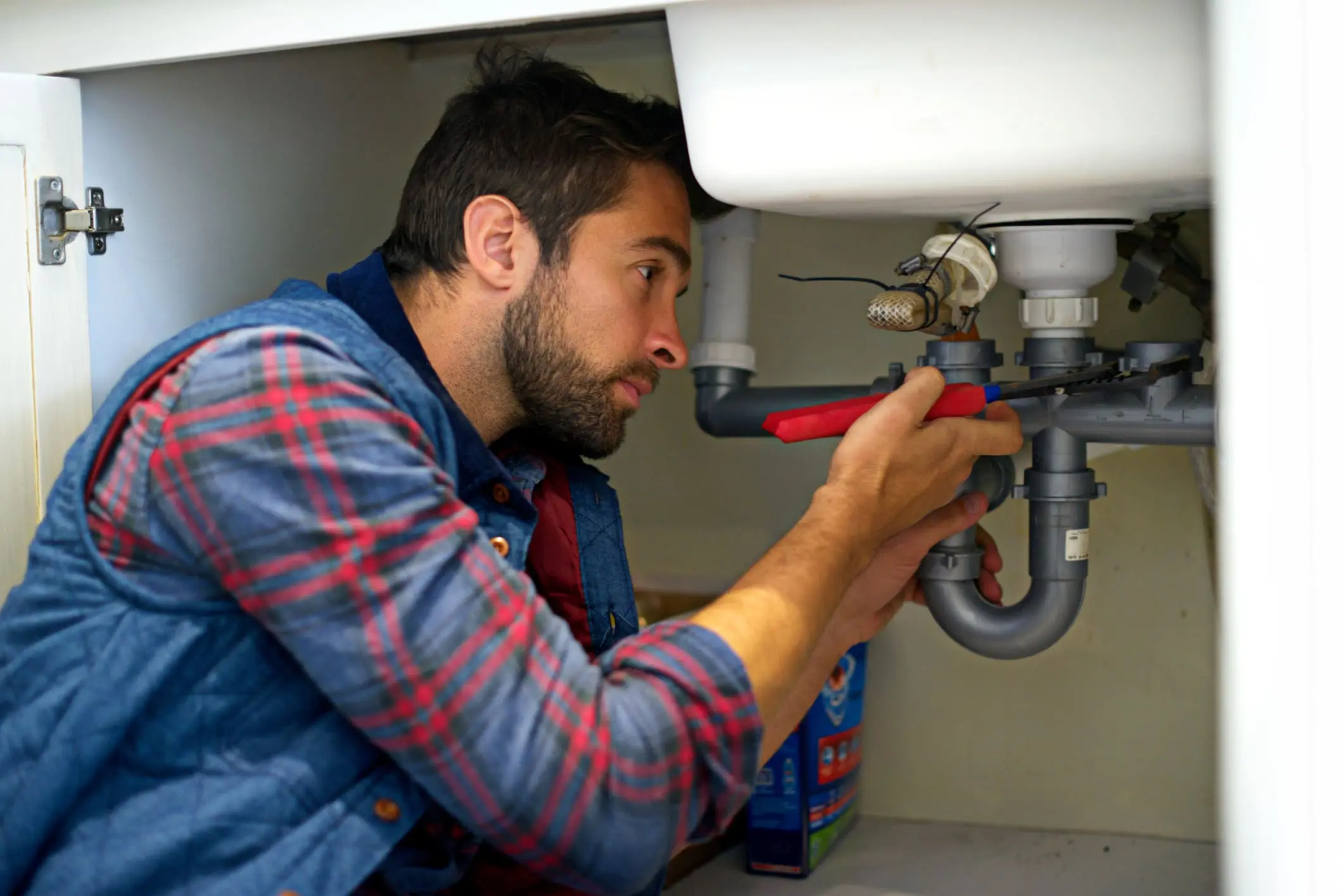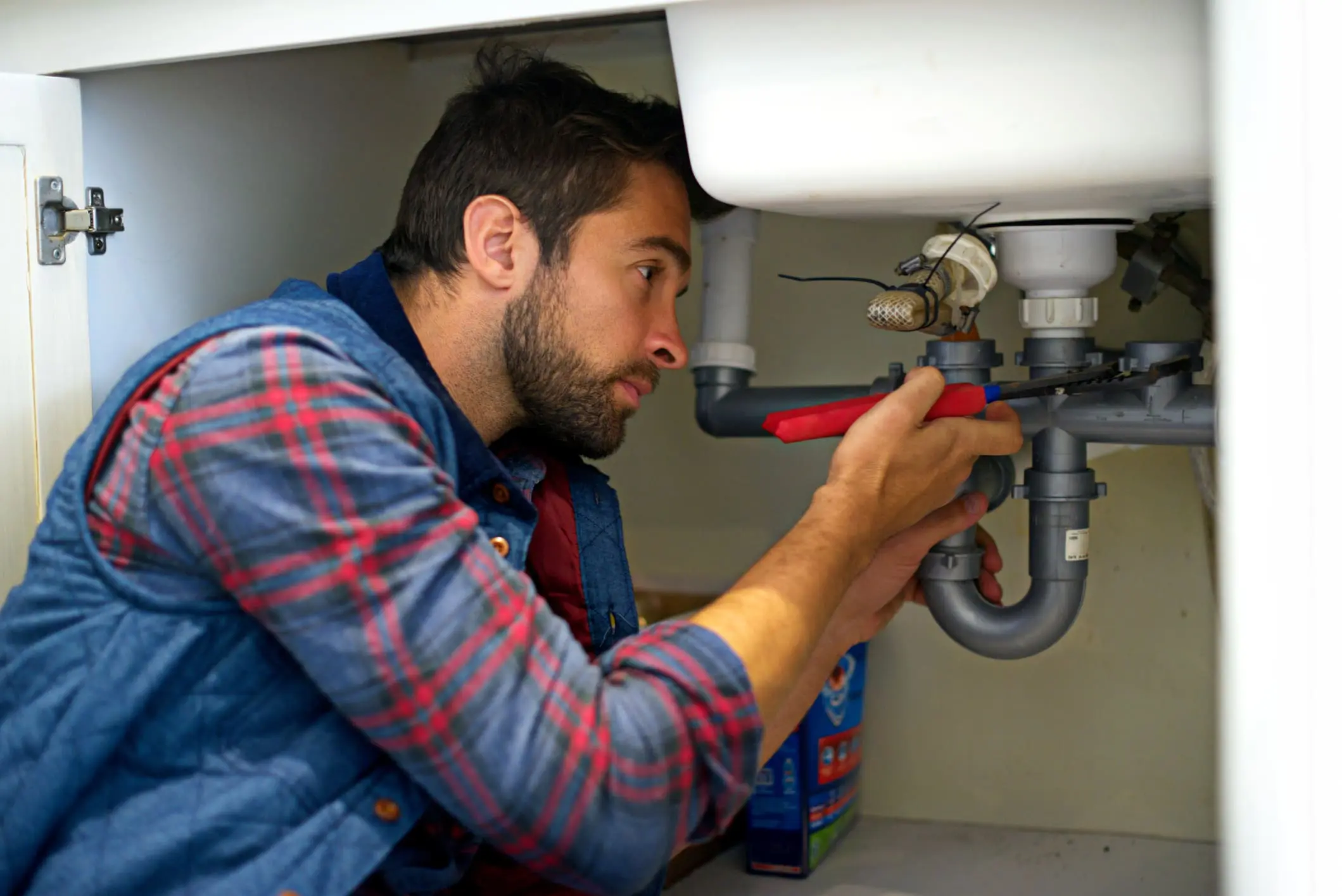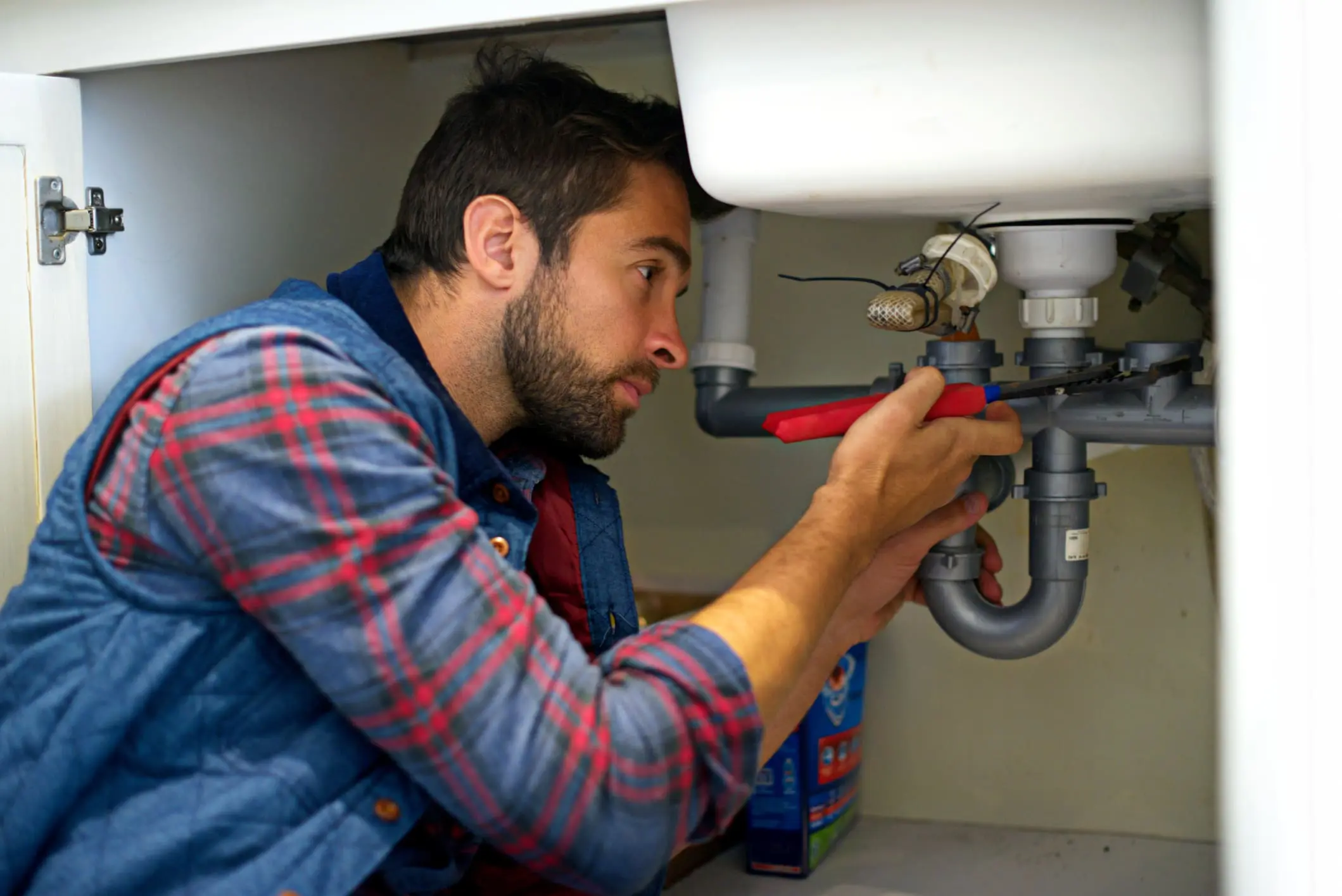The plumbing industry presents unique risks that require specialized insurance coverage. From working in confined spaces to h…
Plumber Business Interruption Insurance: Protecting Your Revenue When Work Stops
When you're running a plumbing business, your income depends on being able to respond to customer calls, complete jobs, and keep the work flowing. But what happens when circumstances beyond your control force you to stop working? Equipment breakdowns, property damage, supply chain issues, or even a global pandemic can bring your plumbing operations to a halt. This is where business interruption insurance becomes crucial for plumbers.
What is Business Interruption Insurance for Plumbers?
Business interruption insurance is designed to replace lost income when your plumbing business cannot operate normally due to covered events. Unlike standard plumbing insurance that covers physical damage to your tools or van, business interruption insurance focuses on protecting your cash flow and ongoing expenses when you can't earn your usual revenue.
For plumbers, this coverage is particularly valuable because your business relies heavily on being mobile, having access to specialized tools, and maintaining customer relationships. Any disruption to these core elements can quickly impact your bottom line.
Common Scenarios Where Plumbers Need Business Interruption Coverage
Equipment and Vehicle Breakdowns
Your van breaks down and needs major repairs, leaving you unable to reach customers or transport tools. Your specialized drain cleaning equipment fails during a busy period. Your pipe threading machine requires replacement parts that take weeks to arrive. These scenarios can halt your operations and cost you significant revenue.
Property Damage to Your Base of Operations
If you operate from a workshop, garage, or storage facility, damage from fire, flood, or storm can prevent you from accessing your tools and equipment. Even if you work from home, damage to your property could disrupt your ability to run your business effectively.
Supply Chain Disruptions
Plumbers rely on steady access to pipes, fittings, fixtures, and specialized materials. When suppliers face shortages or delivery delays, you might be unable to complete jobs or take on new work, especially for larger projects requiring specific materials.
Utility Failures
Extended power outages, water supply issues, or telecommunications failures can prevent you from operating normally, responding to emergency calls, or accessing digital systems needed for modern plumbing operations.
Regulatory Issues
If health and safety violations, licensing problems, or regulatory changes force you to temporarily cease operations, business interruption insurance can help cover the lost income during the compliance period.
What Business Interruption Insurance Covers for Plumbers
Lost Revenue Replacement
The primary benefit is replacing income you would have earned during the interruption period. This is typically calculated based on your historical earnings and projected future income, helping maintain your standard of living while you cannot work.
Ongoing Business Expenses
Your business expenses don't stop when your revenue does. Business interruption insurance can cover continuing costs like:
- Van insurance and financing payments
- Tool financing or lease payments
- Business phone and mobile contracts
- Professional memberships and licensing fees
- Storage facility rental
- Insurance premiums
Additional Operating Expenses
Sometimes you need to spend extra money to minimize the interruption or maintain customer relationships. This might include:
- Hiring temporary equipment
- Outsourcing work to other plumbers
- Emergency repairs to get back operational quickly
- Temporary workspace rental
Customer Retention Costs
Maintaining customer relationships during an interruption might require additional marketing, communication, or compensation efforts that the insurance can help cover.
Types of Business Interruption Coverage for Plumbers
Standard Business Interruption
Covers lost income and ongoing expenses when your business cannot operate due to direct physical damage to your property, equipment, or vehicles from covered perils like fire, theft, or storm damage.
Extended Business Interruption
Provides coverage when your business is affected by damage to suppliers, customers, or other businesses you depend on. For plumbers, this might include coverage when your main supplier's warehouse burns down or a major client's property is damaged.
Civil Authority Coverage
Protects you when government authorities prevent access to your work area due to events like natural disasters, public safety concerns, or infrastructure damage.
Utilities Interruption
Covers losses when utility failures prevent normal business operations, which can be particularly relevant for plumbers who need reliable power and water access.
Key Considerations for Plumber Business Interruption Insurance
Waiting Period
Most policies include a waiting period (typically 24-72 hours) before coverage begins. This prevents claims for very short interruptions but means you need to plan for brief disruptions yourself.
Coverage Limits and Duration
Policies typically have maximum payout amounts and time limits (often 12-24 months). Consider your business's vulnerability and how long major interruptions might last when selecting limits.
Accurate Income Documentation
Your coverage amount should reflect your actual income potential. Keep detailed financial records to support your coverage needs and any future claims.
Seasonal Variations
Plumbing businesses often have seasonal peaks and valleys. Ensure your policy accounts for these variations in calculating lost income, especially if an interruption occurs during your busy season.
Exclusions to Understand
Pandemic and Communicable Disease
Many standard policies exclude losses from pandemics or communicable diseases. You may need specific endorsements for this coverage.
Cyber Incidents
If your business relies on digital systems for scheduling, invoicing, or customer management, standard business interruption might not cover cyber-related disruptions.
Gradual Deterioration
Slow-developing problems like gradual equipment wear or declining customer demand typically aren't covered.
War and Terrorism
These are commonly excluded perils, though separate coverage may be available.
How Much Business Interruption Insurance Do Plumbers Need?
Calculate Your Monthly Revenue
Start with your average monthly gross income over the past 12-24 months. Consider seasonal variations and growth trends.
Identify Fixed Expenses
List all expenses that continue even when you're not working: van payments, insurance, phone bills, storage costs, licensing fees.
Consider Recovery Time
Think about how long different types of interruptions might last. Equipment replacement might take weeks, while property damage could require months to resolve.
Account for Growth
If your business is growing, base your coverage on projected income rather than just historical figures.
Example Calculation
A plumber earning £4,000 monthly with £1,500 in fixed expenses might need coverage of £5,500 per month for 12 months, totaling £66,000 in business interruption coverage.
Making a Business Interruption Claim
Immediate Steps
Document the cause of interruption with photos, reports, and witness statements. Notify your insurer as soon as possible and maintain detailed records of all losses and expenses.
Financial Documentation
Provide historical financial records, tax returns, and bank statements to establish your normal income patterns. Keep detailed records of lost revenue and continuing expenses during the interruption.
Mitigation Efforts
Show that you're taking reasonable steps to minimize the interruption and resume normal operations. This might include seeking alternative suppliers, renting temporary equipment, or finding temporary workspace.
Professional Support
Consider working with an accountant or loss adjuster to ensure your claim accurately reflects your losses and maximizes your recovery.
Cost Factors for Plumber Business Interruption Insurance
Business Size and Revenue
Higher revenue businesses typically pay more in premiums, but the coverage provides proportionally greater protection.
Risk Factors
Your location, type of plumbing work, equipment values, and claims history all influence pricing.
Coverage Limits
Higher coverage limits and longer coverage periods increase premiums but provide better protection.
Deductibles
Choosing higher deductibles (longer waiting periods) can reduce premiums but increases your out-of-pocket exposure.
Integration with Other Coverage
Business interruption insurance works best as part of a comprehensive commercial insurance package that includes general liability, professional indemnity, and equipment coverage.
Choosing the Right Provider
Look for insurers who understand the plumbing industry and can offer tailored coverage options. Consider factors like claims handling reputation, financial stability, and the availability of specialized endorsements for your specific needs.
Conclusion
Business interruption insurance provides crucial financial protection for plumbers when unexpected events prevent normal operations. By replacing lost income and covering ongoing expenses, this coverage helps ensure that temporary setbacks don't become permanent business failures.
The key is selecting appropriate coverage limits based on your actual income and expenses, understanding policy terms and exclusions, and maintaining proper documentation to support any future claims. While you hope never to need it, business interruption insurance provides peace of mind that your plumbing business can weather unexpected storms and continue serving customers for years to come.
For plumbers operating in today's unpredictable business environment, business interruption insurance isn't just an option – it's an essential component of a comprehensive risk management strategy.


 0330 127 2333
0330 127 2333
